Filter by
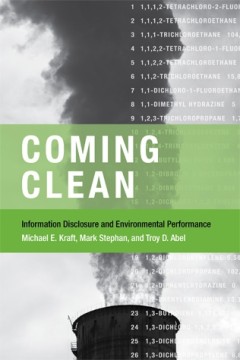
Coming clean Information Disclosure and Environmental Performance
"Coming Clean is the first book to investigate the process of information disclosure as a policy strategy for environmental protection. This process, which requires that firms disclose information about their environmental performance, is part of an approach to environmental protection that eschews the conventional command-and-control regulatory apparatus, which sometimes leads government and i…
- Edition
- -
- ISBN/ISSN
- -
- Collation
- -
- Series Title
- -
- Call Number
- -
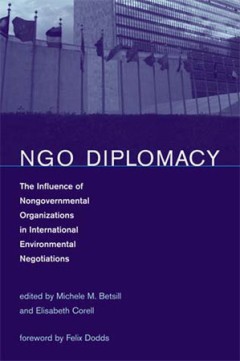
NGO diplomacy The Influence of Nongovernmental Organizations in International…
Provides an analytical framework for assessing the impact of NGOs on intergovernmental negotiations on the environment and identifying the factors that determine the degree of NGO influence, with case studies that apply the framework to negotiations on cl.
- Edition
- -
- ISBN/ISSN
- -
- Collation
- 1 online resource (xvii, 244 pages)
- Series Title
- -
- Call Number
- -
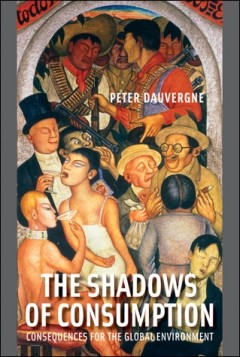
The shadows of consumption : Consequences for the Global Environment
An environmentalist maps the hidden costs of overconsumption in a globalized world by tracing the environmental consequences of five commodities.The Shadows of Consumption gives a hard-hitting diagnosis: many of the earth's ecosystems and billions of its people are at risk from the consequences of rising consumption. Products ranging from cars to hamburgers offer conveniences and pleasures; but…
- Edition
- -
- ISBN/ISSN
- -
- Collation
- 1 online resource (xvi, 315 pages)
- Series Title
- -
- Call Number
- -
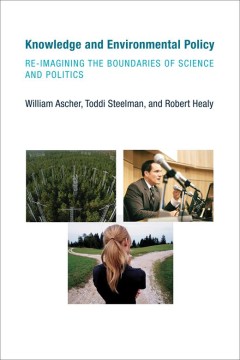
Knowledge and environmental policy: Re-imagining the boundaries of science an…
During the George W. Bush administration, politics and ideology routinely trumped scientific knowledge in making environmental policy. Data were falsified, reports were edited selectively, and scientists were censored. The Obama administration has pledged to restore science to the policy making process. And yet, as the authors of Knowledge and Environmental Policy point out, the problems in con…
- Edition
- -
- ISBN/ISSN
- 9780262289153
- Collation
- 1 online resource (xv, 260 pages) :illustrations.
- Series Title
- -
- Call Number
- -
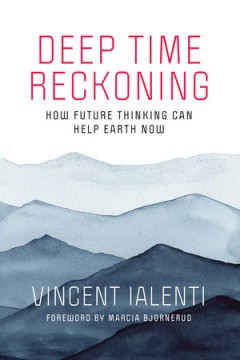
Deep time reckoning :how future thinking can help earth now
"How Finland's nuclear waste experts discern far future Earths, and what the rest of us non-Finns and non-experts can learn from them"--OCLC-licensed vendor bibliographic record.
- Edition
- -
- ISBN/ISSN
- 9780262359368
- Collation
- 1 online resource.
- Series Title
- -
- Call Number
- -

Knowing Machines: Essays on Technical Change
A symposium on condensed-phase processes at high temperatures, particularly in nonmetal systems, which presents a record of recent efforts to understand the field and apply this understanding to complex systems.
- Edition
- 1
- ISBN/ISSN
- 9780262310819
- Collation
- -
- Series Title
- -
- Call Number
- -
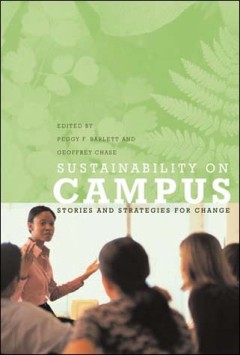
Sustainability on Campus: Stories and Strategies for Change
Stories both practical and inspirational about environmental leadership on campus.These personal narratives of greening college campuses offer inspiration, motivation, and practical advice. Written by faculty, staff, administrators, and a student, from varying perspectives and reflecting divergent experiences, these stories also map the growing strength of a national movement toward environment…
- Edition
- -
- ISBN/ISSN
- 9780262267717
- Collation
- 1 online resource (viii, 327 pages) :illustrations.
- Series Title
- -
- Call Number
- -
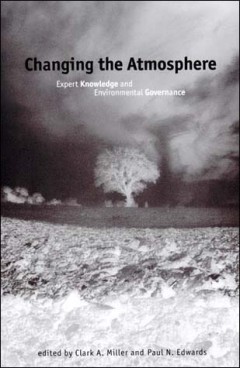
Changing the Atmosphere: Expert Knowledge and Environmental Governance
In recent years, Earth systems science has advanced rapidly, helping to transform climate change and other planetary risks into major political issues. Changing the Atmosphere strengthens our understanding of this important link between expert knowledge and environmental governance. In so doing, it illustrates how the emerging field of science and technology studies can inform our understanding…
- Edition
- -
- ISBN/ISSN
- 9780262279819
- Collation
- 1 online resource (xii, 385 pages) :illustrations.
- Series Title
- -
- Call Number
- -

Transnational Politics of the Environment: The European Union and Environment…
A study of the effect of EU membership on Central and Eastern European environmental policy and the interplay of political incentives and industry behavior that determines policy In Transnational Politics of the Environment, Liliana Andonova examines the effect of the Europen Union (EU) on the environmental policies of Bulgaria, the Czech Republic, and Poland. Compliance with EU environmental r…
- Edition
- -
- ISBN/ISSN
- 9780262267168
- Collation
- 1 online resource (x, 251 pages) :illustrations.
- Series Title
- -
- Call Number
- -
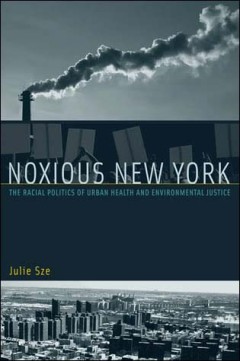
Noxious New York :the racial politics of urban health and environmental justice
'Noxious New York' examines the culture, politics, and history of the movement for environmental justice in New York City, tracking activism in four neighborhoods on issues of public health, garbage, and energy systems in the context of privatisation, deregulation, and globalisation.OCLC-licensed vendor bibliographic record.
- Edition
- -
- ISBN/ISSN
- 9780262284646
- Collation
- 1 online resource (x, 282 pages) :illustrations, map.
- Series Title
- -
- Call Number
- -
 Computer Science, Information & General Works
Computer Science, Information & General Works  Philosophy & Psychology
Philosophy & Psychology  Religion
Religion  Social Sciences
Social Sciences  Language
Language  Pure Science
Pure Science  Applied Sciences
Applied Sciences  Art & Recreation
Art & Recreation  Literature
Literature  History & Geography
History & Geography